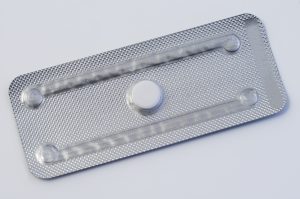 The emergency contraceptive pill (ECP), often referred to as the “Morning After Pill”, is a type of emergency birth control used to prevent pregnancy in women who have had unprotected sex or whose birth control method has failed.
The emergency contraceptive pill (ECP), often referred to as the “Morning After Pill”, is a type of emergency birth control used to prevent pregnancy in women who have had unprotected sex or whose birth control method has failed.
Emergency contraceptive pills contain the medications levonorgestrel or ulipristal acetate. Both delay or prevent ovulation when taken within 72 to 120 hours after contraceptive failure or having unprotected sex. Pills containing ulipristal acetate require a prescription and those made with levonorgestrel can be purchased over the counter without a prescription.
It is important to note that while effective, emergency contraceptive pills do not prevent all pregnancies. According to The American Academy of Family Physicians, “Emergency contraception is about 75 to 85 percent effective.”
Furthermore, they are less effective when taken beyond the recommended time of 72 to 120 hours after intercourse. The sooner they are taken the better.
Emergency contraceptive pills are generally safe to take; however, they should not be used if:
- You know you are or think you might already be pregnant
- You have a history of abnormal vaginal bleeding
- You are allergic to the ingredients
Other precautions to keep in mind are: ECPs should only be taken as a form of backup contraception. They should not be used for routine birth control. Lastly, these pills cannot be used to terminate a pregnancy.
The side effects of emergency contraceptive pills are mild and may include:
- Headache
- Fatigue
- Breast tenderness
- Abdominal cramps
- Spotting (light bleeding)
- Nausea or vomiting ( If you vomit within two hours after taking an emergency contraceptive pill, consult with your healthcare provider to determine if you should repeat the dose.)
If you are experiencing symptoms such as abnormally heavy or long-lasting vaginal bleeding, fevers or chills, pain during intercourse after taking ECPs, or missed periods within three weeks of taking the pill contact your doctor immediately.
To speak with a doctor at the Women’s Health Department at Jamaica Hospital Medical Center, please call 718-291-3276.
All content of this newsletter is intended for general information purposes only and is not intended or implied to be a substitute for professional medical advice, diagnosis or treatment. Please consult a medical professional before adopting any of the suggestions on this page. You must never disregard professional medical advice or delay seeking medical treatment based upon any content of this newsletter. PROMPTLY CONSULT YOUR PHYSICIAN OR CALL 911 IF YOU BELIEVE YOU HAVE A MEDICAL EMERGENCY.
